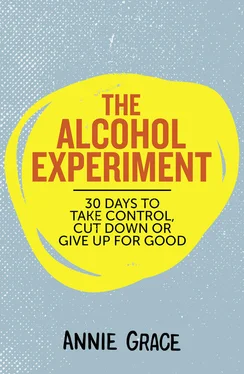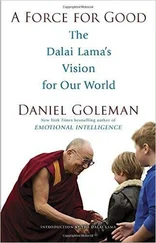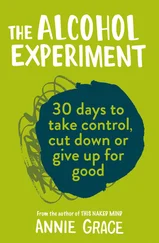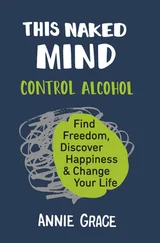So what can you do in the meantime? How do you handle the emotional discomfort and strong desire to give in?
My solution was to get curious about my own behavior. Anytime I had a strong urge to drink, I sat with it and went deep into what was going on. I became an internal reporter. I asked myself questions all the time to find out what I was feeling exactly and what was actually causing me to feel that way. Sometimes I felt like I was missing out because I was with a group of friends who were all drinking. Other times I’d had a hard day at work and felt like I needed a drink to calm my nerves. Other times I felt like I’d been good for so long that I “deserved” to have a drink as a reward.
TODAY,instead of trying to ignore or overcome your discomfort by having a drink, ask yourself, “Why do I want to drink right now ? What is it that I think alcohol will do to make this moment better?” And then ask yourself, “Is that true?” If you’re completely objective and honest, you might surprise yourself with your answers.
Do this little exercise first. Write down your answers, or record yourself in a video diary or voice memo. By doing this, you’re observing the symptoms as something separate from you. You’re giving yourself perspective—and a little bit of time for the feelings to subside. And remember that your body is amazing. It’s taking care of you right now by getting rid of all the toxins it’s had to deal with for a long time. Yes, you might not feel your best for a bit. But when the process is complete, your body will feel better than ever.
And consider the online social challenge at alcoholexperiment.com; you can find thousands of others who are also doing this experiment. Sharing your insights with others in a safe, judgment-free environment is incredibly powerful.
Day 4 Reflections from alcoholexperiment.com
“Good days but bad nights. Woke up at 3 a.m. not feeling the best but definitely not hungover. And a bit of a headache this morning. I spent the day thinking about all the holidays and times with my kids I don’t remember. Yesterday it dawned on me how much time alcohol has stolen from me. Yes, I let it. But the reading today very much reinforced that. I am generally happy. Still thankful!”
—ROBYN
“I have been having such strange dreams, I feel such a physical difference. I didn’t realize alcohol takes so long to get out of your system, so even though I binge-drink once or twice a week, I was feeling so crappy because I was never alcohol-free. I had constant headaches, fatigue, bloating, nausea. I am learning so much!”
—GEORGE
“Didn’t expect the physical symptoms to be so real. Glad I understand why I am having them. Still better than being hungover. Need to be gentle on myself and others through this. Can’t wait to sleep again!”
—HECTOR
 DAY 5
DAY 5 
What Are Cravings, Really?
Knowledge renders belief obsolete.
—NANA JANE
I’ve found there are two kinds of cravings you have to contend with at different times: physical cravings and emotional cravings. Physical symptoms such as anxiety, restlessness, and the inability to sleep show up while the alcohol is still in your system. We know they’re cravings because they go away if you give in and have a drink. It can take up to a week for alcohol to completely leave your system, so that’s about how long you can expect those physical cravings to last. After that point, you’re most likely looking at mental or emotional cravings. (Fortunately, you probably know exactly the last time you had a drink. When people try to get over a sugar addiction, they sometimes consume sugar without even knowing it because it’s hidden in so many food products!)
Psychological or emotional cravings can be much harder to handle simply because they are triggered by certain circumstances that your subconscious knows (from experience) may be helped by having a drink. You’ve reached the point in your relationship with alcohol that it’s taking more than it’s giving, and you feel like you want to cut back or stop. That’s a conscious decision you’ve made. But if your subconscious mind still believes that alcohol is key to relaxation and that you have to drink to have a good time with your friends, then those psychological cravings will creep in—sometimes years after you’ve had any alcohol. Your desires originate from your subconscious mind. And a craving is a desire.
 CRAVINGS AND STRESS
CRAVINGS AND STRESS
For example, if you used to handle work stress by drinking, like I did, then every time you experience work stress, you’ll likely trigger a psychological craving for alcohol. You’ve already wired your brain to do this. It’s a learned response. Your subconscious believes drinking reduces stress, even though science has proven that alcohol actually increases stress over time. And even though you’ve made the conscious decision not to drink, your subconscious didn’t get the memo. So it sends up a desire—a craving.
If your cravings are triggered by stress, you have to find another way to reduce that stress. Studies have shown over and over that exercise is a great way to do that. Once those endorphins get released, the stress and cravings subside. Mindfulness and meditation are other great ways to reduce stress. Don’t worry, you don’t have to shave your head and move to Tibet. There are all kinds of forms of meditation—all you’re really doing is exercising your brain.
The Internal Battle
So you have this battle going on inside you. Your conscious and subconscious are fighting it out over whether you want a drink. It’s frustrating. It’s confusing. And it’s tempting to try to ignore the craving or exert your willpower over it. But that rarely works. Science tells us that the more we try to repress a thought or ignore something, the harder it is to escape. It’s much better to be completely present and mindful during a craving. Notice how you feel and what thoughts are running through your head when you separate yourself and become an observer watching this weird battle between your conscious and subconscious. Detach yourself from the outcome and you’re less likely to give in.
I like to visualize my subconscious mind as a child riding in the backseat of a car. Suddenly the child decides he or she wants an ice cream cone and won’t let it go. Children are the best salespeople in the world because they don’t give up. They don’t take no for an answer. They’ll keep attacking the problem in a different way over and over until they get what they want.
“Can I have an ice cream, Mom?”
“That ice cream sure looks good!”
“Look! A gas station. Don’t you need gas, Mom? I bet they have ice cream inside.”
“What’s your favorite ice cream, Mom? I like chocolate!”
“So, when are we getting ice cream? Now or after dinner?”
“You know what would make Dad happy? A surprise ice cream!”
If children think there’s even the slightest chance that they’ll get what they desire, they will keep pestering you. Even if you don’t have kids, you’ve been a kid. So you know what I’m talking about, right? The only way to get children to give up is to get rid of the desire, which means either distracting them or making them understand that there is NO WAY they are getting an ice cream.
Distraction
Читать дальше

 DAY 5
DAY 5  CRAVINGS AND STRESS
CRAVINGS AND STRESS

![Джон Харгрейв - Mind Hacking [How to Change Your Mind for Good in 21 Days]](/books/404192/dzhon-hargrejv-mind-hacking-how-to-change-your-min-thumb.webp)








